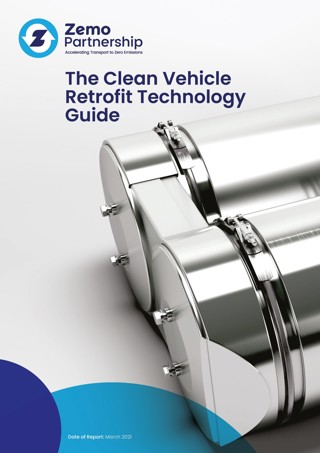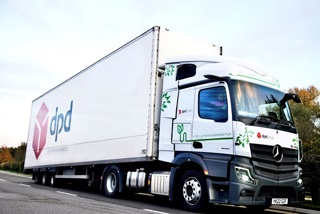A greenhouse gas-based fuel duty structure could encourage uptake of low carbon renewable fuels in hard-to-electrify transport applications and accelerate the transition to net zero, according to analysis by Zemo Partnership.
The new study explores a pricing mechanism for a fuel duty discount and the potential GHG emission benefits of the use of high blend renewable fuels (HBRF) in heavy vehicles.
Biodiesel and hydrotreated vegetable oil (HVO) can cut GHG emissions by 85%-90% compared with standard fossil diesel, when produced from biogenic waste feedstocks.
Working with the Renewable Transport Fuel Association (RTFA) and UKPIA, Zemo carried out a comprehensive analysis of the whole-life costs for HDV and heavy non-road vehicle fleets running on renewable fuel compared with conventional (fossil-derived) diesel.
The team, supported by a range of Zemo members, developed a potential fuel duty structure to identify the ‘sweet spot’ where operators can make significant carbon savings at minimal cost to the Treasury, with duty reductions matching the value of carbon savings.
The study shows how a fuel duty discount could be set for a 100% renewable diesel fuel and scaled according to the bio-content in HBRFs . Fuels would only qualify for the incentive if approved under the Renewable Transport Fuels Obligation and produced from waste-based biomass feedstocks.
Elizabeth de Jong, CEO of UKPIA, said: “Liquid fuels will be needed for a long time, especially for heavy duty vehicles where electric and hydrogen options aren’t yet ready. Low carbon liquids can reduce well to wheel GHG emissions by up to 90% now and can be delivered using our existing infrastructure.
“But to be attractive at scale to fleet operators, we need to see real incentives such as new duty rates that reward operators for using lower carbon fuels. I welcome this timely report from Zemo which assesses that changes to duty could offer a viable, early decarbonisation route for HDVs."
Zemo Partnership’s head of sustainability and one of the report authors, Gloria Esposito, added: “This latest study builds on our earlier work, which showed the immense potential for sustainability-verified renewable fuels to cut greenhouse gas emissions in the short and medium term.
“Our successful Renewable Fuels Assurance Scheme addresses one of the barriers to uptake but if we’re going to realise their full potential for GHG reductions, the financial hurdles to the adoption of these fuels will also need to be addressed.”























Login to comment
Comments
No comments have been made yet.